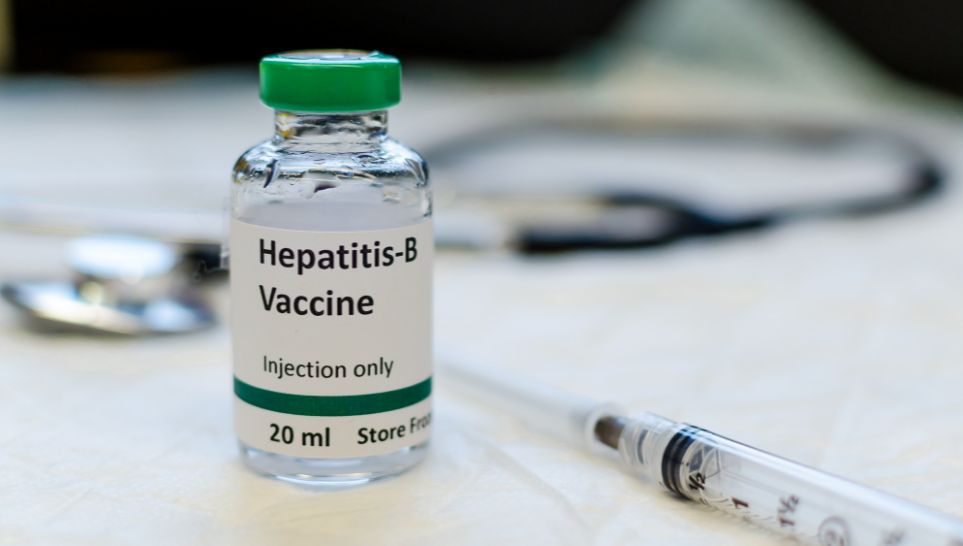Vaccines have always been a hot topic, but the pandemic has fueled the flames of controversy. One of the most polarizing issues concerns routine immunizations for school-age children. But what about vaccines for teachers? Adults can transmit vaccine-preventable diseases just as easily as children can. At Sadaka Law, our lawyers help people nationwide with vaccine-related injury cases. As teachers are essential workers, they need to know and understand all the facts surrounding routine immunizations in relation to their jobs, health, and lives.
Why Are Vaccines Important for Teachers?
According to the World Health Organization (WHO), vaccines prevent between four and five million deaths every year across the globe. While that’s a general reason demonstrating the importance of teachers and school staff receiving vaccines, there’s much more to it. Teachers who receive routine vaccinations help minimize the risk of transmission to each other and their students during in-person instruction. Also, teachers are role models, which means they can contribute to vaccine confidence among students, their families, and the broader community.
What Are Some Common Vaccines Recommended for Teachers?

The Centers for Disease Control and Prevention (CDC) has a complete adult immunization list of recommended vaccinations by age. However, the CDC’s list differs slightly from the suggested vaccines for teachers, school staff, health care workers, and child care workers in the Caring for Our Children (CFOC) database. The CFOC recommends the following immunizations for teachers:
- COVID-19
- Influenza (flu) – IIV4, RIV4, LAIV4
- Measles, mumps, and rubella – MMR
- Varicella (chickenpox) – VAR
- Human papillomaviruses – HPV
- Zoster recombinant (shingles) – RZV
- Tetanus, diphtheria, and pertussis – Tdap, Td
Teachers with higher risk factors should also follow the CFOC’s suggestions for additional vaccines:
- Hepatitis A – HepA
- Hepatitis B – HepB
- Meningococcal – MenACWY, MenB
- Pneumococcal – PCV15, PCV20, PPSV23
- Haemophilus influenzae type B – Hib
Are There Any Age-specific Vaccines Recommended for Older Teachers?
Due to their still-growing immune systems, young children are highly vulnerable to vaccine-preventable diseases. The same goes for older adults and seniors. Many have underlying health conditions or compromised immune systems. In light of this, staying current with routine immunizations is even more important for educators over 60 who provide in-person learning.
In addition to the standard schedule, the CDC recommends that people 60 years and older receive the following immunizations:
- Seasonal influenza (flu) vaccine
- Tdap or Td vaccine
- Zoster (shingles) vaccine (age 50+)
- Pneumococcal vaccines
How Often Should Teachers Update Their Vaccinations?
Is there a specific timeframe for teachers to update their immunizations? The answer to that question depends largely on the vaccine in question. For example, teachers should receive the influenza vaccine once every year. The Tdap or Td vaccine is only one dose with a booster every ten years. However, special situations, indicators, or risk factors can influence how often educators should update their vaccinations.
Vaccination Programs for Teachers
Teachers nationwide have numerous programs and resources regarding vaccines, which we’ll discuss below.
What Initiatives and Campaigns Promote Vaccines for Teachers?

School-located Vaccination Clinics: SLV clinics have expanded teachers’ and students’ access to COVID-19 and influenza vaccines. These clinics are part of the “Vax to School” program, emphasizing the importance of staying updated with immunizations. It also aims to spread the word that vaccines are (mostly) safe and effective at preventing certain diseases.
Federal Retail Pharmacy Program: The FRPP prioritizes eligible teachers, child care workers, and school staff who need COVID-19 vaccines, which are free at pharmacies nationwide. Cooperation between the CDC and public health agencies on the state and local levels has made the FRPP possible and facilitated access to the COVID-19 vaccine at no cost to the general public.
What Resources and Support Are Available for Teachers Regarding Vaccines?
Thankfully, many organizations offer support for vaccination programs for teachers. Some of the best are:
- National Education Association – Check out the NEA’s Vaccine Resource Center.
- Centers for Disease Control and Prevention – The CDC website is full of important information about vaccines.
- Alliance for a Healthier Generation – The HG website also contains Vaccination Resources.
Educators can also consult with their primary care physician to learn more about where they can receive routine immunizations.
What happens if a school staff member or teacher suffers a vaccine-related injury? While vaccines are generally effective and safe, some people experience adverse reactions, with the most common injury affecting the shoulder.
In this case, it’s important to report the vaccine injury through the Vaccine Adverse Event Reporting System (VAERS). Victims of a vaccine-related injury may be eligible to seek compensation by filing a vaccine injury compensation claim with help from an experienced lawyer.
What Are the Guidelines for Vaccine Administration for Teachers?
The term “vaccine administration” refers to the specific method health care personnel use to deliver a vaccine. The most common method of administration is an injection in the upper arm. Currently, no federal or widespread guidelines dictate vaccine administration for teachers. However, the CDC recommends the following guidelines before administering a vaccine:
- Review the patient’s medical and immunization history
- Determine the specific vaccination they need
- Check whether the patient has any risk factors or precautions
- Explain important information to the patient about the immunization
- Prepare the vaccine correctly and safely
- Administer the vaccine to the patient
- Document the vaccination
What Is the Recommended Vaccination Schedule for Teachers?

We’ve already given you the CFOC’s list of recommended immunizations for educators. Below, we’ve condensed that information into a quick-read chart:
| Vaccine | Recommended Dose |
| Influenza | 1 annual dose |
| Measles, mumps, rubella (MMR) | 1 or 2 doses |
| Tetanus, diphtheria, pertussis (Tdap/Td) | 1 Tdap dose, Td/Tdap booster every 10 years |
| Varicella (Chickenpox) | 2 doses (if born later than 1980) |
| COVID-19 Vaccines | 2 or 3 primary doses and booster |
| Human papillomavirus (HPV) | 2 or 3 doses |
| Shingles (RZV) | 2 doses |
The CFOC database recommends additional vaccines for adult educators who have specific risk factors:
| Vaccine (for certain indicators) | Recommended Dose |
| Hepatitis A (HepA) | 2, 3, or 4 doses |
| Hepatitis B (HepB) | 2, 3, or 4 doses |
| Pneumococcal (PCV15, PCV20, PPSV23) | 1 dose PCV15, then PPSV23 or 1 dose PCV20 |
| Haemophilus influenzae type B (Hib) | 1 or 3 doses |
| Meningococcal (MenACWY, MenB) | 1 or 2 doses MenACWY, 2 or 3 doses MenB |
Can Teachers Refuse Vaccines for Personal or Religious Reasons?
Each state has specific laws regarding vaccine exemptions. That said, it is possible for teachers to forgo immunization with three allowable exceptions:
Medical exemptions – Every state in the U.S. allows for vaccine exemptions based on medical reasons, like allergies or a weakened immune system.
Personal belief exemptions – A philosophical exemption is rare, and currently, only 15 states allow it.
Religious exemptions – Most states (44 and D.C.) allow vaccine exemptions based on one’s religious beliefs.
Sadaka Law: Trusted Advocate for Victims of Vaccine-Related Injuries
The CDC recommends the same general vaccines for teachers as it does for students, and most educators remain up to date with the necessary immunizations. Yes, vaccines are usually safe and effective, but not always. For people who have suffered a vaccine-related injury, life can become extremely challenging. In that case, trust Sadaka Law and our 15+ years of experience to help seek compensation for your injury. Reach out to Sadaka Law by calling 800-810-3457 and schedule a consultation today with our legal team.-






